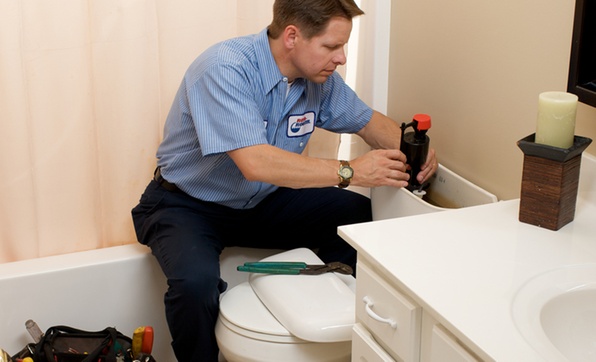New Homeowners: Key Advice for Your Bathroom Plumbing
New Homeowners: Key Advice for Your Bathroom Plumbing
Blog Article
Do you find yourself looking for information and facts involving General Plumbing Tips for New Homeowners?

For new homeowners, understanding and preserving bathroom pipes can save both time and money by preventing costly concerns down the line. Right here are some essential shower room plumbing suggestions to aid you maintain everything running smoothly.
Acquaint Yourself with the Key Shut-Off Valve
Understanding where the major water shut-off shutoff is located in your home is vital. This permits you to swiftly turn off the water in case of significant leaks or throughout plumbing emergency situations, avoiding comprehensive water damage.
Consistently Evaluate for Leaks
Tiny leaks can lead to large problems. On a regular basis check under sinks, around commodes, and near plumbing components for any indications of leakages. Seek wetness, little drips, or rust. Catching and fixing leakages early can stop more severe damages and save water.
Do Not Disregard Slow Drains
If your sink or bath tub is draining gradually, it's usually an indication of a clog developing. Resolving this very early can prevent a complete blockage. Use a bettor or a plumbing professional's serpent to remove particles. Stay clear of using chemical drainpipe cleansers as they can damage your pipes in time.
Know What Not to Flush
Commodes are not waste disposal unit. Prevent purging anything apart from toilet tissue and human waste. Things like wipes, feminine health products, and cotton swabs need to be gotten rid of in the garbage to prevent obstructions and sewage system back-ups.
Mount Strainers in Drains
Location filters in your sink and bathtub drains to capture hair and other particles before they enter your plumbing system. Cleaning the strainers frequently will help avoid build-up and maintain water flowing easily.
Keep Your Water Heater
Ensure your hot water heater is set to an appropriate temperature (normally about 120 levels Fahrenheit) to stop scalding and decrease energy usage. Flush the storage tank every year to eliminate debris build-up, which can lower the effectiveness and life-span of your heater.
Upgrade Your Components
If your home has older components, take into consideration updating to a lot more efficient designs. Modern toilets, showerheads, and taps are developed to utilize less water while offering good stress, which can dramatically reduce your water costs and environmental impact.
Beware with DIY Pipes Repair Works
While it's appealing to deal with all home repairs by yourself, be cautious with pipes. Some concerns might require expert competence, particularly if they entail main water lines or drain fixings. Working with a professional can occasionally be more economical than do it yourself, specifically if it prevents further damages.
Prepare for Cold Weather
Protect your pipelines from cold throughout cold weather by insulating pipes in unheated areas like cellars, attic rooms, and garages. During extreme chilly, allow cold water drip from taps served by revealed pipelines to aid avoid cold.
Set Up Routine Maintenance
Think about scheduling annual examinations with a certified plumbing professional. They can identify issues that you could miss, such as hidden leakages or wear and tear on pipelines and fixtures. Normal maintenance aids extend the life of your pipes system and can prevent emergency situations.
Verdict
Comprehending and maintaining your home's washroom plumbing can protect against lots of usual problems. By complying with these essential ideas, you can guarantee your shower room stays practical and effective, conserving you money and time over time.
Essential Plumbing Tips for Homeowners: Keep Your Pipes Flowing Smoothly
As a homeowner, understanding the basics of your plumbing system can save you time, money, and a lot of headaches. Plumbing issues can range from minor annoyances like dripping faucets to major problems like burst pipes that cause significant damage. This guide provides essential tips to help you maintain your plumbing system and tackle common issues.
Understanding Your Plumbing System
Supply System: Brings fresh water into your home from a municipal source or a well. Drain-Waste-Vent System: Removes wastewater and vents sewer gases outside. Fixtures and Appliances: Includes sinks, toilets, showers, dishwashers, and washing machines. Basic Maintenance Tips
Regular Inspections: Periodically check for leaks, corrosion, and other signs of wear and tear. Look under sinks, around toilets, and near water heaters. Know Your Main Shut-Off Valve: In case of a major leak, you’ll need to shut off the water quickly. Ensure everyone in your household knows where the main shut-off valve is located. Prevent Frozen Pipes: In cold climates, insulate exposed pipes and let faucets drip during extreme cold to prevent freezing. Use Strainers: Install strainers in sinks and tubs to catch hair, food particles, and other debris that can cause clogs. Common Plumbing Issues and Solutions
Clogged Drains:
Prevention: Avoid pouring grease down the drain and use drain screens to catch debris. DIY Fix: Use a plunger or a plumbing snake to clear minor clogs. For stubborn clogs, a mixture of baking soda and vinegar can sometimes help. Leaky Faucets:
Prevention: Replace washers and seals regularly. DIY Fix: Turn off the water supply, disassemble the faucet, and replace worn parts.

Free Estimate Report this page